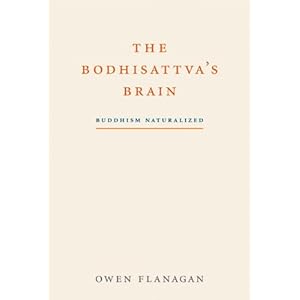Welcome home! Please contact lincoln@icrontic.com if you have any difficulty logging in or using the site. New registrations must be manually approved which may take several days. Can't log in? Try clearing your browser's cookies.
The Boddhisattva's Brain
 B5C
Veteran
B5C
Veteran

A new book came out a few weeks ago. Sam Harris gives it a good recommendation. I just put it on my wishlist.
http://www.amazon.com/Bodhisattvas-Brain-Buddhism-Naturalized/dp/0262016044
Here's Sam Harris' opinion:
"Buddhist doctrines about meditation, compassion, and well-being have begun to greatly enrich the scientifix study of the humand mind-but we have long needed a careful analysis of the philosophical merits of these ideas. In The Boddhisattva's Brain, Flanagan has delivered it in fine style. This is an unusually wise and useful book."
Here's what the inlay says:
If we are material beings living in a material world-and all the scientific evidence suggests that we are-then we must find existential meaning, if there is such a thing, in this physical world. We must cast our lot with the natural rather than the supernatural. Many Westerners with spiritual (but not religious) inclinations are attracted to Buddhism-almost as a kind of moral-mental hygiene. But, as Own Flanagan points out in The Boddhisattva's Brain, Buddhism is otherwise opulently polytheistic, with spirits, protector deities, ghosts, and evil spirits. Its beliefs include karma, rebirth, nirvana, and non-physical states of mind. What is a nonreligious, materially grounded spiritual seeker to do? In the Boddhisattva's Brain, Flanagan argues that it is possible to subtract the hocus-pocus from Buddhism and discover a rich, empirically responsible philosophy and could point us to one path of human flourishing.
"Buddhusm naturalized," as Flanagan constructs it, containsa metaphysics, epistemology, and ethics; it is a fully naturalistic and comprehensive philosophy, compatible with the rest of knowledge. Some claim that neuroscience is in the process of validating Buddhism empirically, but Flanagan's naturalized Buddhism does not reduce itself to a brain scan showing happiness patterns. Buddhism naturalized offers instead a tool for achieving happiness and human flourishing-a way of conceiving of the human predicament, of thinking about meaning for finite material beings living in a material world.
0
